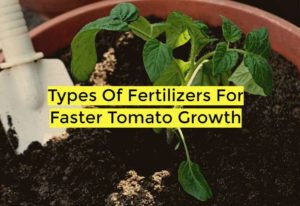A soil test will test what nutrients lack in your soil and need to be added. It will also tell you what kind of pathogens are in that soil and whether they are harmful to the crop you will grow on that soil. A water test will tell you what kind of salts are in the water and whether that water is used for farming. Some water may be too salty or have unfavourable pH.
This kind of knowledge is crucial when beginning because it will guide your use of fertilizer and save you a lot of unnecessary expenses. Imagine starting the project only for your crop to be killed by pathogens or infected water. This can be easily avoided with a quick soil test.
What are the benefits of a soil test?
Knowing how much fertilizer to apply
The tests help guide you as a farmer on how much fertilizer you will need to add to the soil to get a good harvest. The test shows you which nutrients are in plenty and which ones are lacking in the soil.

With this information, you can get the right kind of fertilizers with higher concentrations of the nutrient which occurs in low concentrations in the soil as per the tests.
Farmers have run into this problem many times where you find yourself applying too much fertilizer where you should be using less. Or, using the wrong formulation which ends up hurting the plant.
With the current emphasis on sustainability around the globe, it has come to light that the overuse of farm inputs has adverse effects on the environment we live in. You can play a part in protecting your local environment by minding how you use these inputs.
Know what pathogens are in the soil
A tomato soil test also gives you information on the pathogens present in the soil which may affect the yield of your plants or kill them. Nematodes that attack the roots of tomatoes and prevent water from getting to the leaves can be dealt with easily. You can plow the farm when it’s hot out to expose them to the heat or apply nematicidal chemicals on the soil to kill them.
Soil pH
soil pH refers to the amount of potential hydrogen in the soil which is an indication of the acidity of the soil in question. how much acidity or basicity is present in the soil as per the soil test influences the absorption of nutrients into the plant from the root. tomatoes, for example, require a pH of about 5.5 to 6.5. This is a slightly acidic pH.
A full pH range is from 1 to 6 as acidic, 7 as neutral, and 8 to 14 as basic where 1 is very acidic and 14 being very alkaline.
Why a water test will do you good
Salt concentration in the water
Water tests provide you with salt content in the water and the pH. When the salt concentration in the water is too high, your tomato plant will not be able to absorb water and nutrients from the soil.
Water pH
The pH also affects the plants’ ability to absorb nutrients. Plants have a preferred pH in which they grow well. The pH has a range from 0 to 14. In this range, 0 to 6 is the acidic range, 7 is neutral and 8 to 14 is the basic or alkaline range.
Tomatoes do well in slightly acidic environments from a pH of 5.5 to 6.5. Anything above that will affect the yield of the plant.
What is a water test?
Water tests are done on the water you intend to use on the farm or the source of that water. You first take a sample in a bottle which you will send to the laboratory. Because of the many tests carried out on the water, you should carry enough of the sample water with you.
Around 5 litres should be enough to cover all the tests. This is because some of the tests may have to be repeated.
What is a soil test?
Soil tests are carried on the soil on which you will be growing crops. The purpose of a soil test is to get all the information regarding the nutrients present in the soil and the quantity. You will also find the soil type in those results.
Another test performed on the soil is the pathogen test. However, it is done separately from the soil nutrient test. Here, the soil is tested for bacteria, nematodes, viruses, and other parasites. These are all manner of microorganisms that may threaten the life of your tomato plant.
Collecting and handling the samples
When collecting the soil sample to send to the laboratory, you use a method called random sampling. What this means is you do not collect soil from just one point. You should randomly pick points on the farm which is far apart in relation to the size of the farm.

Collect enough soil to fill a 2-litre bottle or more in case they need to repeat any tests.
Once you have the samples, package them nicely inside a cardboard box to keep them tamper-proof and safe during travel. Indicate all of your details on the packaging to make sure the labs have all the details about the location of the farm and the person who sent the samples.
You should take it to the laboratory personally to ensure it is handled properly. This is highly recommended. Although, you can send them by courier services if you cannot go there in person.
Who can do the test?
To test your soil and water, you have to find a credible laboratory near you. This could be a university or an institution that deals with agriculture, plant health, or forests. Find one that is recognized by the government. An institution like KEPHIS might be a good place to start.
Some of the companies which take samples outsource their testing to these organizations and bring the results. The disadvantage of going through a middleman is that you end up paying more for the service.

Increasingly, there has been an insurgence of portable soil and water test kits that individual farms can own and operate. They require a bit of training but once you know the ropes, you can be your own analysts.
How much does a soil test cost?
A soil nutrient test will go for about 20 to 25 dollars. However, this may vary in your region. Just find the website for your local testing laboratory and make an inquiry.
How long will you wait
The test usually takes about a week because of the nature of the analysis being carried out. Just in case some tests need to be repeated you may have to wait till the third week to get your results. Otherwise, you should receive your results within the second week if they are received on Monday the previous week.
What are some of the recommendations?
Some of the details in the report they send you may be complex but they do write some great recommendations in the report that are easy to digest and apply.
Whether the crop will succeed and which crop could do well
You will know whether the crop you selected is right for your soil and water type and, if not, which crop can do well as an alternative.
How to kill pathogens present in the soil
On some occasions, you may find pathogens present in the soil. in such cases, the soil testers will show you what you need to do to reduce the risk of the pathogens destroying your crop. For example, in sukuma wiki(kales), you can use integrated pest management techniques.
Amount and fertilizer profile to use
In the results, not only do you get advice on which crops might do well in that type of soil. They will also recommend which formula of fertilizer to apply based on the state of your soil sample and whether that water will be a good fit for that soil.





[…] a lot of calcium. Such practices use up all the nutrients in the soil. You should perform a soil test to give you information on which nutrients may be lacking in your soil before you begin […]
[…] levels should be monitored using a soil test. You can add more fertilizer if the nitrogen level in the soil is low, add more fertilizer. […]
[…] Read more: Soil and water test for tomatoes: What you should know […]